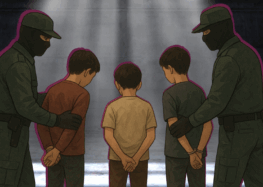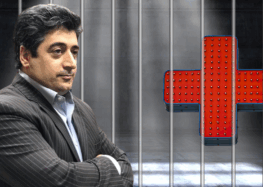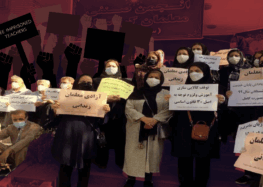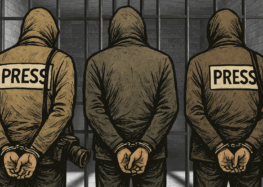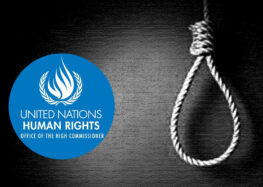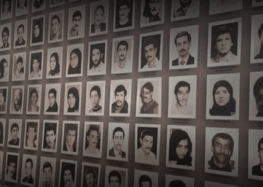45 Women Political Prisoners in Iran Blame Authorities for Death of Somayeh Rashidi After Deliberate Denial of Medical Care
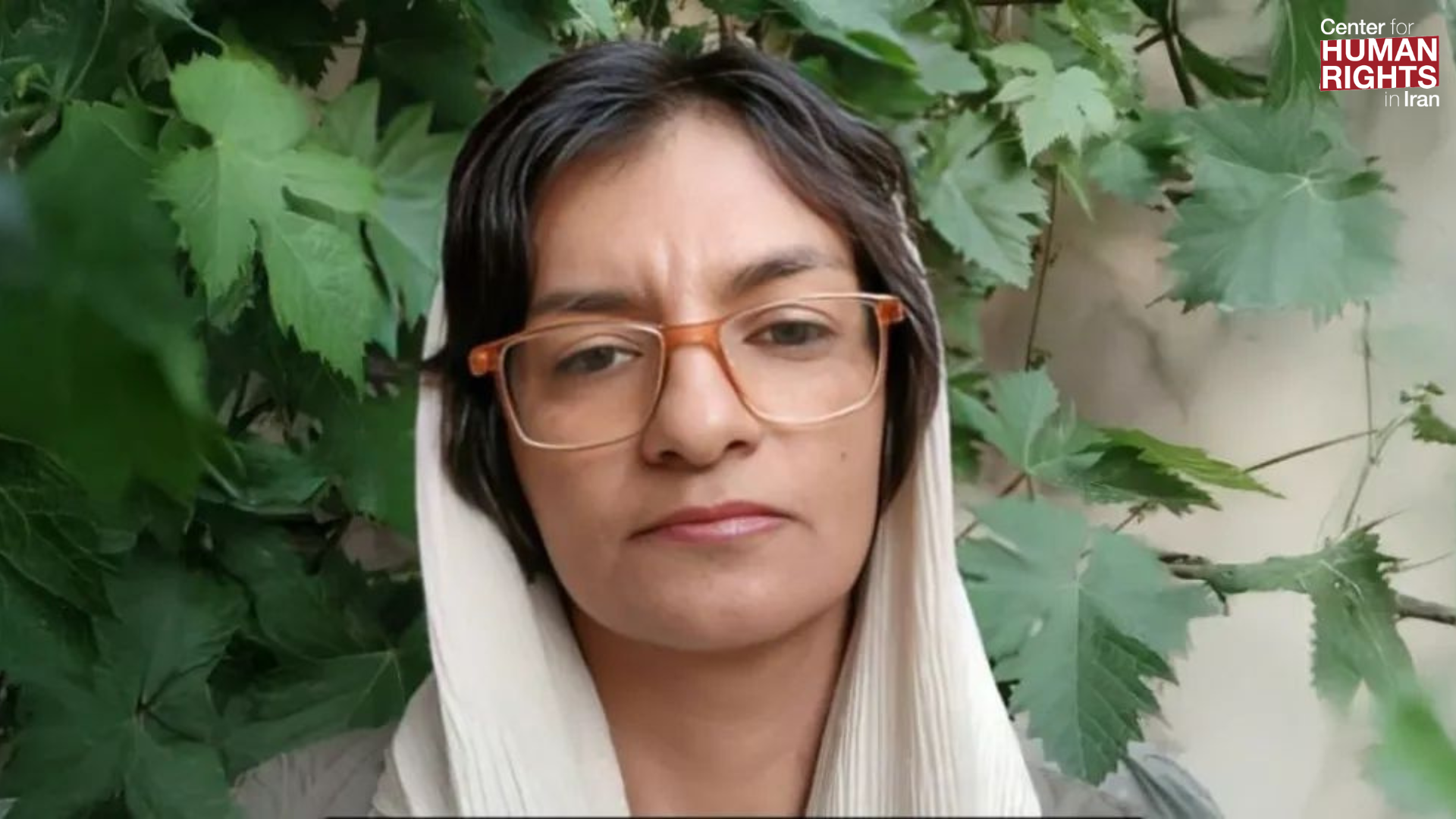
Woman Political Prisoner in Iran Is Dead After Deliberate Denial of Medical Care
Many Others At Risk Due to Systematic Denial of Medical Care in Iranian Prisons
September 25, 2025 — Forty-five women political prisoners in Iran’s notorious Qarchak Varamin Prison have issued a joint statement following the death of their fellow inmate, Somayeh Rashidi, who passed away after months of deliberate medical denial.
In their letter, they reject official attempts to distort the circumstances of her death, testify to her deteriorating health due to deliberate denial of care, and denounce the authorities’ failure to grant her release on bail despite knowing the risks to her life. The prisoners warn that many others remain at grave risk under similar conditions and call for the urgent release of elderly and ailing detainees.
Somayeh Rashidi, an Iranian political prisoner, died at Mofatteh Hospital in Tehran on September 25, 2025, after prison authorities delayed her hospital transfer and repeatedly denied her proper medical care in prison.
The Center for Human Rights in Iran (CHRI) calls for an independent and transparent investigation into Rashidi’s death, accountability for those responsible for her medical denial, and immediate actions to ensure other detainees in Iran receive adequate and timely health care. The Iranian authorities’ continued pattern of intentional medical neglect of political prisoners is tantamount to torture and a grave violation of the right to life.
Rashidi, age 42, was arrested in April 2025 in Tehran’s Javadiyeh neighborhood for writing slogans critical of government policies. She was imprisoned in Evin Prison and transferred to Qarchak Prison following the Israeli attack on Evin in June 2025.
Her health deteriorated throughout her detention, while her repeated requests for care and concerns raised by her family and cellmates were ignored by prison authorities and sedatives were prescribed instead of treatment. On September 15, 2025, she suffered a severe seizure and was taken to the hospital in a semi-conscious state, where doctors said the delayed transfer caused irreversible damage, a source close to her family told HRANA.
She was violently beaten during her arrest—officers slammed her head against a wall, sat on her chest to restrain her, and inflicted multiple blows to her face, legs, and abdomen. Rashidi had filed a formal complaint against the officers for these acts of brutality.
CHRI emphasizes that Rashidi’s case is part of a wider, systematic pattern of weaponizing the denial of medical care against political prisoners in Iran.
Since the beginning of 2025, similar reports of deliberate denial of medical care have been documented for numerous prisoners, including Khaled Pirzadeh, Mokhtar Albushokeh, Zeynab Jalalian, Raheleh Rahmipour, Maryam Jalal Hosseini, Seyed Abolhassan Montazer (65), Abbas Vahidian Shahrudi, Taher Naqavi, Mohammad Najafi, Manouchehr Jafari Ahmadabadi, Mostafa Ramazani, Matloub Ahmadian, Mohammad Banazadeh Amirkhizi (80), and Maryam Akbari Monfared.
The systematic denial of medical care in the Islamic Republic’s prisons is a long-standing practice that requires the utmost urgency, as multiple political prisoners have died due to the denial of treatment in the past
CHRI is deeply alarmed by these ongoing violations and the grave threat posed to lives of other political prisoners in Iran unless immediate and concerted international pressure is directed at the Iranian authorities to cease their practice of denying medical care to political prisoners.
CHRI calls on the UN High Commissioner for Human Rights, the Special Rapporteurs on Iran and on Torture, and governments worldwide to demand that the Iranian authorities immediately provide full and timely medical treatment, including transfer to hospitals for proper care, for all prisoners, before more women and men—who never should have been imprisoned in the first place—are killed by the Islamic Republic.
Read the letter by 45 political prisoners below.
45 Women Political Prisoners in Qarchak Varamin Prison: Somayeh Rashidi Was Full of Desire for Life and Freedom
We extend our condolences to all freedom-seekers, political prisoners, and the family of our fellow inmate, Somayeh Rashidi, who has lost her life.
Today, on September 24, 2025, we received the heartbreaking news of the death of our cellmate, Somayeh Rashidi, while contradictory reports continue to distort the truth about her condition with falsehoods.
We, 45 women political prisoners in the political ward of Qarchak Varamin Prison, testify that Somayeh Rashidi was neither addicted to drugs nor suffering from any identified mental illness. We testify that from the moment she entered prison, Somayeh Rashidi was known by the security officials, the Prisons Organization, Evin Prison, Qarchak Prison, and the Qarchak prison infirmary to be suffering from epilepsy. Time and again, especially in the past two months, she experienced severe seizures before our eyes. Yet after being transferred to the infirmary, instead of being hospitalized for emergency care and exempted from criminal liability due to her condition, she was repeatedly sent back to prison without proper treatment.
We, Somayeh Rashidi’s fellow prisoners, testify that until her final moments she was full of desire for life and freedom, and until her last days she persistently pursued release on bail set at three billion tomans—a sum her family was unable to provide. Despite full knowledge of her health condition, officials at Qarchak and Evin Prisons and the Kachouei Court prosecutor’s office did nothing to facilitate her release over nearly five months.
Now that our dear Somayeh has fallen victim to incompetence and the regime’s constant, deliberate fabrications, we warn that other “Somayehs” remain with us and in other prisons of the Islamic Republic, and their health is at risk. Evidence of this danger is the recent death, just last week, of two inmates convicted of non-political crimes in Qarchak Prison, which passed in silence and obscurity.
We will not tolerate the repetition of such tragedies and demand urgent action for the release of prisoners over 60 years old, as well as our fellow inmates whose health conditions are life-threatening.
45 Women Political Prisoners of Qarchak Varamin Prison
September 24, 2025

